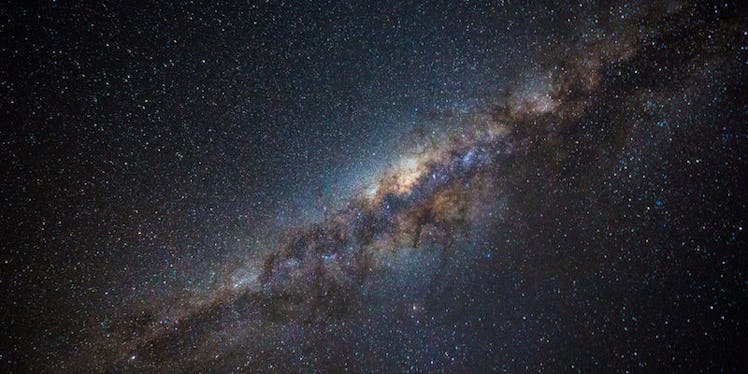
If You Live In One Of These Places, You'll Never See The Milky Way Again
According to a new study, a third of the Earth's population can't see the Milky Way in the night sky.
Now, if you don't know what the Milky Way is, first of all, that's very bad, and second of all, that probably means you can't see it. The Milky Way is the galaxy our solar system resides in, and at night, you are supposed to see it trace a glowing belt across the sky.
And the number of people who can actually see it is shrinking by the day because of light pollution.
Think about it like this: Not being able to see the Milky Way because of light pollution is like not being able to see the walls in your house because you've filled your direct vicinity with too much cigarette smoke.
The study, performed by the Light Pollution Science and Technology Institute, found 60 percent of people in Europe and a staggering 80 percent of people living in North America can't see the Milky Way. Nearly all of the East Coast of America can't see it at all.
As the authors of the study put it,
Humanity has enveloped our planet in a luminous fog that prevents most of Earth's population from having the opportunity to observe our galaxy.
Now, if you're reading this and thinking, “Who gives a shit?” I'd like you just to realize being able to see the Milky Way at night has been, for millions of years, one of the most basic and long-lasting givens of life on this planet. It's not so different than being totally fine with never seeing the blue sky because of smog.
It is only in the last couple of centuries night-time light pollution began to even be a thing. Before then, and really until relatively recently, every living person on this planet would look up at night and see the galaxy we live in.
The problem is light pollution is pretty abstract.
We don't think of light as something that can accumulate from millions of sources, but if you have ever been to Times Square in New York city at night, you get a very clear idea of how it works. The sky is so bright with light pollution there, it feels like those streets are perpetually trapped in twilight. From elsewhere in the city, you can literally see the sky glow above midtown.
The main author of the study, Fabio Falchi, describes his findings as a “cultural loss of unprecedented magnitude,” and I don't think he is exaggerating.
After all, something that has been a constant -- one of the only constants -- for every society until the last couple hundred years, is now being lost.
Citations: The Guardian